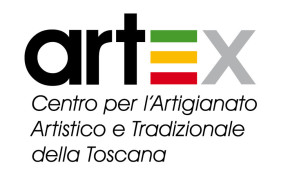Training offer aimed at those who want to deepen their knowledge in tailoring and fashion. All courses are run by master artisans with expert experience.
On the initiative of the Cassa di Risparmio di Firenze Foundation, in collaboration with the Associazione Osservatorio dei Mestieri d'Arte OMA, Spazio NOTA was created, to foster development and skills in the field of artistic and traditional crafts. The primary objective is to provide and disseminate guidance, teaching, and technical and practical training to train skills in the tailoring and fashion sector.
The pressing demand for top-level fashion/tailoring courses at affordable cost has stimulated OMA to invest in technical and vocational training in a beautiful historical setting in the heart of the city, recently renovated and fully equipped with Fondazione CR Firenze funds. The educational offer is always improved and updated. The 2021 program includes both basic and advanced 40-hours workshops on various topics (leather works, tailored jackets, patternmaking, sleeves, corsets, and bustiers, etc.), and two 110-hours courses (including internships in local business) of pattern/prototype/sample making accredited and recognized by the Tuscany Regional Authority.
Courses are attended by students of all ages – especially young people already skilled – interested to delve more deeply into tailor-made craftsmanship topics. Other stakeholders could be teachers, University Professors or generally experts, enlightened amateurs, Master of Art with significant educational proclivities.
Resources needed
The project cost of running the training programme is about 50.000€ including costs of teachers and trainers, utilities, tools and materials, maintenance of 6 semi-industrial sewing machines, a scientific coordinator, and a part-time employee as activities administrator.
Evidence of success
The revival of ancient dexterity has lately been an increasingly strong theme in many professions. The recent long lockdown period has also strengthened the desire for practical skills, partly in response to the continued exposure to computers and technologies. The ethical and eco-sustainable life approach has inspired many people to get back to manual skills, materials, and slow-made works.
23 courses organized, at different levels, since 2018.
Difficulties encountered
The biggest challenge is to intercept a wide and qualified audience, communication is crucial to implement this practice too. During the lock-down, we used remote communication tools to recruit students and participants. Courses started later when it was possible to guarantee face-to-face classes.
Potential for learning or transfer
These 40 hours courses, full time and full immersion are perfect for professionals who want to specialize but also for younger not yet established. These 40 hours courses, full time and full immersion are perfect for professionals who want to specialize but also for younger not yet established.
It was widely proved that an approach like this could very help in transfer learning, upskill people and help young artisans to specialize in a technique. This is a learning process that could be very useful to be implemented anywhere. The network that comes from the synergies of craftspeople, organizations that promote artisans, and professional trainers it is a precious resource adaptable to any place.
Tags: Design, Education, Textile








